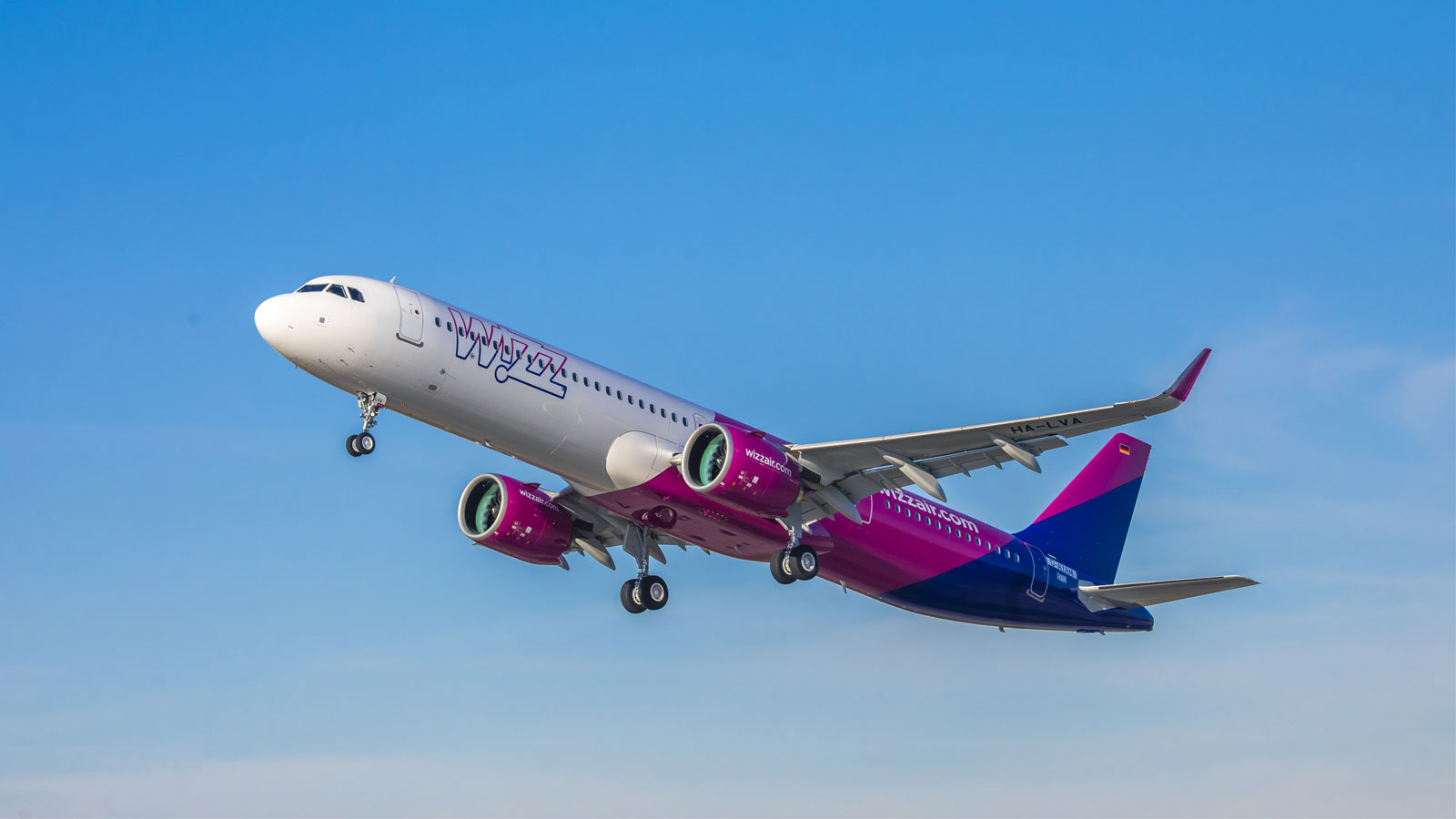Wizz Air, Europe’s fastest growing and most environmentally sustainable airline globally1 reports that its average carbon emissions for 2023 amounted to 51.5 grams per passenger/km, 6.8% lower than in 2022. This represents the airline’s lowest ever average annual carbon intensity result recorded in one calendar year, underpinning its leadership in COintensity reduction among competitor airlines2.
In February 2023, Wizz Air achieved its lowest ever reported carbon emissions per passenger/km for one month, which amounted to 48.9 grams, an 8.3% reduction compared to the same month of 2022.

Wizz Air is committed to further reducing its CO intensity by 25% by 20303. An integral element of the airline’s sustainability strategy is the renewal of its fleet. Wizz Air has been continuously growing its fleet whilst replacing its older aircraft with the latest technology, adding 32 of the newest and most sustainable Airbus A321neo aircraft4 to the fleet in 2023. Currently, the airline operates 195 Airbus aircraft with an average age of 4.3 years, well below the European aviation industry average age, which is around 10 years5.
As part of its sustainability strategy, Wizz Air partnered with two sustainable aviation fuel (SAF) producers in 2023: Neste and Cepsa. To further support SAF development, the airline made its first equity investment of £5 million in Firefly Green Fuels, a UK biofuel company, and participated in a US$50 million investment in the US-based SAF start-up CleanJoule. In May 2023, Wizz Air became the first airline in Hungary to commercially test SAF supply together with MOL, operating five flights from Budapest airport with a 35% SAF blend.
During 2023, Wizz Air started performing fully electric turnarounds with Aviation Services at Rome Fiumicino airport and Menzies Aviation at Budapest Airport, supporting wider efforts in the aviation industry to address the current climate change. The initiatives allow to reduce CO emissions from the ground handling process by up to 80-85% per aircraft compared to using diesel-powered equipment.
1 According to the CAPA – Centre for Aviation Awards for Excellence 2022-2023
2 Based on the latest publicly disclosed emission information applicable to a 12-month period (Ryanair, EasyJet). Due to differences in reporting period, the figures and timeframe are not fully aligned.
3 Compared to a baseline of 57.2 grams per passenger/km in F20 (1 April, 2019 – 31 March, 2020)
4 The Airbus A321neo delivers 20% reduction in fuel consumption and CO emissions as well as 50% reduction in NOx and noise emissions compared to the previous model Airbus A321ceo.
5 Based on the latest publicly disclosed fleet age information applicable to a 12-month period (Ryanair, EasyJet, Iberia, Norwegian, SAS, Air France – KLM, Lufthansa, Finnair). Due to differences in reporting period, the figures and timeframe are not fully aligned.

